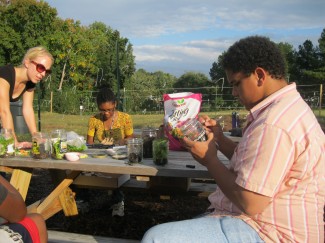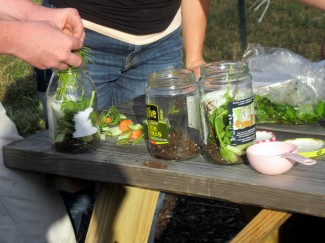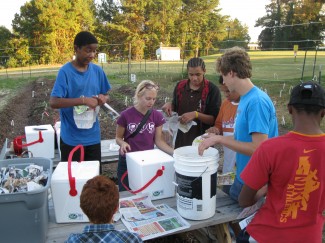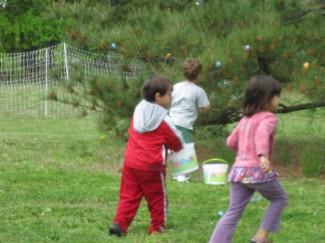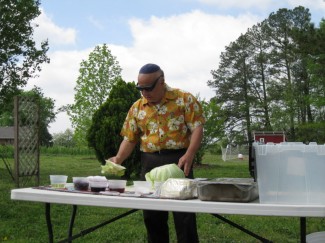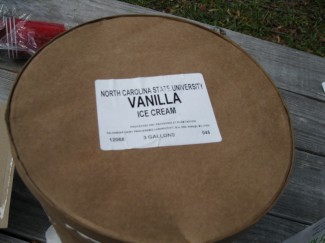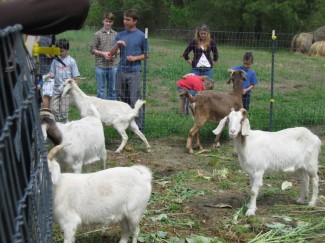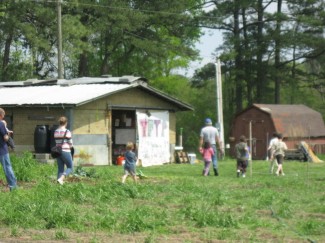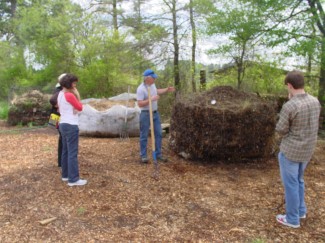Students from NC State University (NCSU) have partnered with Inter-Faith Food Shuttle to conduct a gardening class for teens in the community garden we manage at Parrish Manor, meeting once a week from Sept. 27 - Nov. 15. On the day I visited, NCSU Soil Science students Natalie and Jacob were teaching a lesson on compost. They brought with them a bag of un-enriched potting soil and some finished compost. As an experiment, they asked the class participants to fill 6 mason jars with the following: Potting soil + vegetable scraps; Potting soil + paper scraps; Potting soil + plastic scraps; Compost + vegetable scraps; Compost + paper scraps; Compost + plastic scraps.
The teens in the class then talked about which material might break down the fastest, considering factors like the amount of micro-organisms present, the amount of nitrogen, etc. Their hypotheses: The vegetables will break down in compost fastest, and the plastic in potting soil will break down slowest. They’ll monitor the jars in the coming weeks to see if their hypotheses are correct.
Natalie and Jacob also taught the class about waste management and jobs that involve waste treatment and composting. They began the lesson by asking the class to draw where they think waste from our toilets goes after it’s flushed, and ended by highlighting ecological waste water treatment practices like those in the EcoVillage of Findhorn, Scotland. They discussed job opportunities in composting, such as vermicomposting mico-enterprises, where such nutrient-rich worm castings are sold as natural fertilizer, and composting operations like CompostNow (another IFFS partner). It was clear to me these teens were seriously interested in this stuff –Kiara, who also works in the garden, is even thinking about changing her major at Wake Tech to something involving agriculture!
The following week, they nailed together compost bins for the garden, and the teens got to create their own vermicomposting bins!
Fun fact: Did you know that worms can eat twice their body weight in one day? Wow!
See what else has been happening in the Parrish Manor community and community garden in Part 1and Part 2 of this series.






